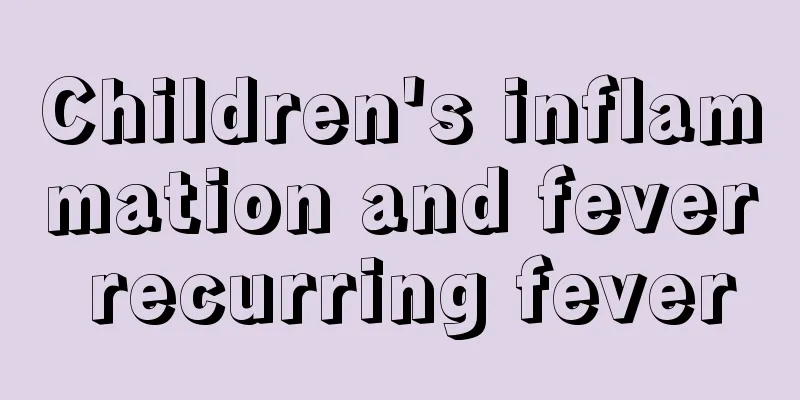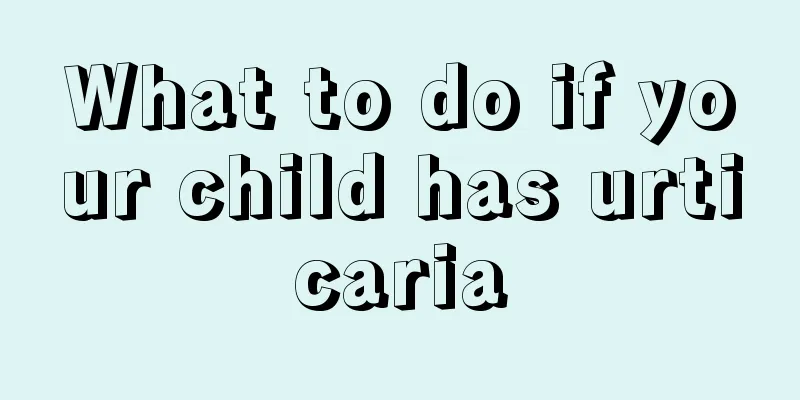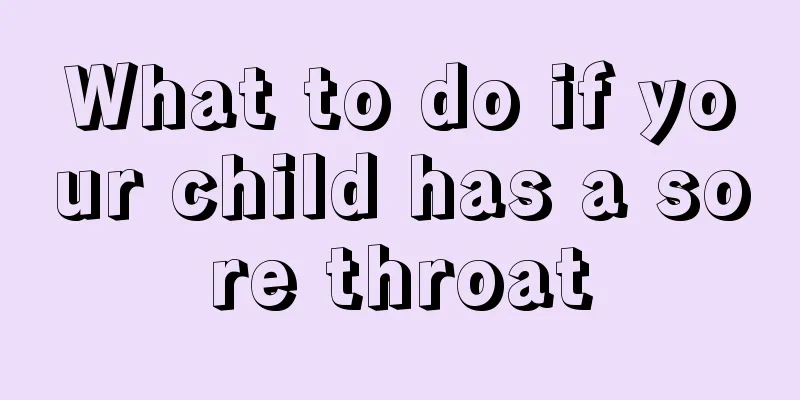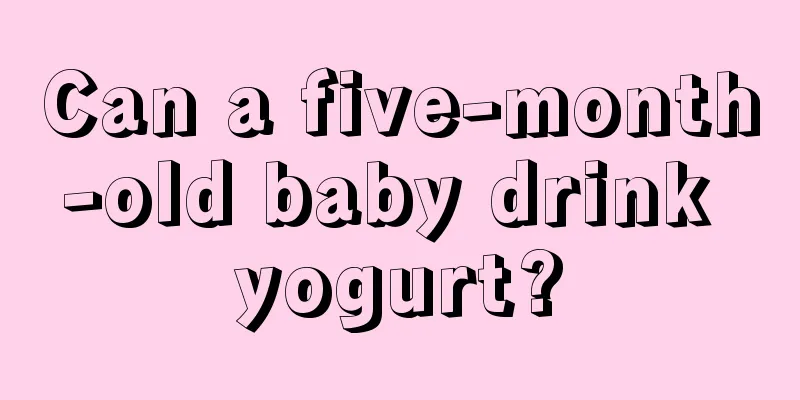Children's inflammation and fever recurring fever

|
We found that many children have fevers due to inflammation. When parents find that their baby has a fever, they should first pay attention to physical fever reduction, then go to the hospital to check the specific inflammation, and find appropriate medication for treatment. As long as the inflammation is suppressed, the fever will naturally subside. Because if the inflammation cannot subside, the fever will recur. Process 1 When you notice that your child's temperature is a little high, don't rashly reduce the fever, rush to take your baby to the hospital, or ask the doctor to give you a fever-reducing injection! The baby's temperature seems a little high. It looks like the baby has a fever! When a child has a fever, as long as he is in good spirits and active, he does not need to be sent to the doctor immediately. Parents only need to take the baby's temperature at any time and observe the temperature changes. Then see your pediatrician for a checkup and treatment of the cause of the fever, cough, runny nose, diarrhea, or vomiting. When the body temperature is greater than 38°C (rectal temperature, ear temperature), it is called a fever. It is a normal physiological reaction of the human body and also a warning signal from the body, reminding us that "the baby may be sick." Many parents mistakenly believe that fever is harmful and that a fever that lasts too long may damage the baby's brain. But generally speaking, a fever below 41°C will not cause direct damage to the brain nerve tissue, so there is no need to be overly nervous. There is a saying among the people that "burned the brain". In fact, burned brain is not simply caused by fever, but because the baby suffers from diseases such as encephalitis and meningitis. Generally speaking, fever is just a symptom of these diseases, and what really affects the brain is a serious brain infection. Fever is a warning sign that children are sick, and it is also an automatic response of the body to improve resistance. The key to treating fever is to first explore what disease is causing it, and then treat it, rather than immediately reducing the fever to normal body temperature. Although taking antipyretics in moderation can alleviate the discomfort of fever and illness, it cannot shorten the course of the disease. On the contrary, a mild fever can enhance the effectiveness of the immune system. Therefore, fever is not entirely a bad thing! Process 2 If a baby has a fever, he or she may have many uncomfortable symptoms, such as: flushing, coughing, general fatigue, soreness, dizziness, headache, vomiting, abdominal pain, drowsiness, poor activity, loss of appetite, noisy, restless, crying, etc., which make the mother feel very distressed. However, some babies do not show any abnormal symptoms when they have a fever. Some babies' fever may be mistaken by their elders as teething and thus ignored. If your baby's temperature is high, it is recommended that mothers make an objective assessment first, such as whether the baby has just finished a hot bath, or the weather is too hot, the baby is wearing too many clothes, the indoor ventilation is poor, the baby has just drunk a hot drink, etc. Wait about half an hour before taking the child's temperature again. There will usually be a difference of 1℃~1.5℃. After excluding the above reasons, consider whether you need to go to the hospital. |
<<: How to remove lead from children with high lead levels
>>: How to get your child to fall asleep quickly
Recommend
A three-year-old cannot walk
Children will slowly learn to walk as they grow u...
Is it necessary for children to attend early childhood education?
In order to enable their children to learn more k...
What should a seven-year-old eat to grow taller?
Every parent hopes that their baby can grow up he...
Is it good for children to drink garlic water when they have a cold and cough?
Cold and cough are conditions that will occur if ...
Is it better to use diapers or diapers?
In recent years, the frequency of diaper use has ...
Nursing methods for premature infants born at 19 weeks
We all know that according to the normal childbea...
What's wrong with my child's fast heart rate?
Children's organs are still developing, so it...
The harm of eating a hair
Today's children have just learned to walk or...
Baby's face, chin and nose are red and hot
Babies are young and sometimes cannot express the...
What causes alcohol poisoning in babies?
When it comes to physical cooling, everyone may k...
What should I do if my child eats chewing gum?
Last week, when my mother-in-law was taking care ...
Children's skin has millet-sized pimples
Children's skin is more sensitive when they a...
What should children eat when they have a cough and phlegm?
Non-pathological coughing, as a protective reflex...
What should I do if my baby has a runny nose for a month?
The baby's every move affects the mother'...
Symptoms of calcium deficiency in six-month-old babies
Babies around half a month old are most likely to...









